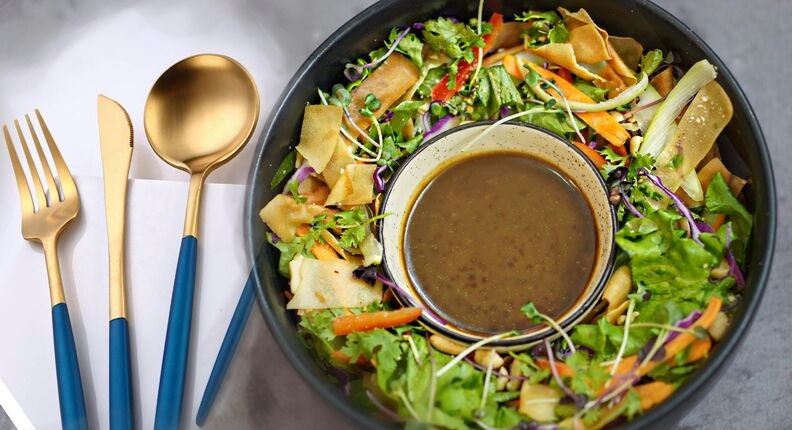In the United States, more attention than ever is being focused on digestive health. As increasing evidence unfolds, it becomes clear that gut health foods are not only good for digestion but also gorgeous for immunity, mental health, and general vitality. Indeed, there exist references to the gut as the “second brain,” controlling how much energy one has or even mood.
Those who face frequent bouts of bloating, inconsistent bowel habits, fatigue, or abdominal-related discomfort would do well to add gut health foods to their daily diet. This comprehensive guide thoroughly examines foods useful in nurturing your gut while providing practical tips on maintaining a balanced microbiome in the year 2025 and beyond.
Why Gut Health Matters
Literally trillions of microbes working inside a single gut: the gut microbiome. These microbes are essential to food digestion, nutrient absorption, and even protection against damaging pathogens. Should this microbiome fall out of balance, a condition known in medical terminology as dysbiosis manifests, and symptoms include digestive perturbations, lowered immunity, inflammation, and even mood changes.
According to NIH research, diet is one of the largest influences on the health of the gut. Therefore, eating a wide variety of gut health foods is paramount to maintaining a diverse and balanced microbiome.
Fermented Gut Health Foods: Probiotics from Mother Nature
The digestive side has always been an area where fermented foods were considered simply the best to eat. On top of that, they are naturally fortified with probiotics, helping in the establishment of the beneficial bacteria in the gut. Hence, if you incorporate them into your diet, they may support and maintain the digestive health of an individual.
The Best Fermented Foods for Gut Health:
- Yogurt: Select plain yogurt that contains live and active cultures.
- Kefir: A drinkable fermented milk with multiple probiotic strains.
- Sauerkraut: Fermented cabbage rich in probiotics and fiber.
- Kimchi: A spicy Korean dish made with fermented vegetables.
- Kombucha: Low sugar and fermented tea for digestion.
Tip: Consuming one or more servings of fermented foods throughout the day increases the growth of good bacteria in the gut and aids in the hype of good digestion.
Prebiotics: Gut Health Foods for Probiotics
Probiotics add beneficial bacteria to the gut, whereas prebiotics nourish those bacteria. In general, prebiotics are plant fibers that the human body cannot digest. Instead, they bypass digestion and get absorbed by good bacteria to keep the microbiome well-balanced and diverse.
Top Prebiotic Foods:
- Oats: Contain beta-glucan fiber that stimulates bacterial growth.
- Garlic and Onions: Contain inulin, a powerful prebiotic fiber.
- Bananas: Slightly green bananas have resistant starch for gut nourishment.
- Asparagus: High fiber and antioxidant content promote healthy bacteria.
Moreover, they tend to be good sources of fiber, which, in turn, helps promote regular bowel movements. Additionally, their fiber content supports overall digestive health.
Pro Tip: Slowly and steadily increase fiber intake so as not to trigger bloating. The gut needs time to adjust.

Polyphenol-Rich Foods for a Healthy Gut
Polyphenols can be described as a plant chemical responsible for antioxidant and anti-inflammatory benefits. Besides protecting the cells, they also serve as a source of Gut Health Foods for some beneficial bacteria.
- Berries (blueberries, raspberries, strawberries): Low sugar and rich in antioxidants.
- Green Tea: Contains catechins that promote both gut and metabolic health.
- Dark chocolate (above 70% cacao): Limited consumption for polyphenol effects.
- Olive Oil: Good for gut microbial diversity.
- Red Grapes, and Red Wine: Resveratrol for his heart and gut health.
Plant Foods: Diversity for Your Microbiome
Plant-based food consumption is undoubtedly one of the first really great things you could do for your gut health. And the fibers and antioxidants in plants also nurture a wide range of friendly bacteria. The more friendly bacteria in the gut, the stronger it becomes, and, in this way, digestion occurs by itself.
Plant-Based Foods for Gut Health:
- Leafy Greens (spinach, kale, arugula): Rich in fiber and magnesium.
- Sweet Potatoes: Contain resistant starch and antioxidants to protect the gut lining.
- Avocados: Provide fiber and healthy fats to reduce inflammation.
- Nuts and Seeds (almonds, chia, flaxseed): Offer omega-3 fats and prebiotic fiber.
Simple Swap: Replace one meat-based meal per week with a plant-based bowl of vegetables, beans, and grains. Over time, your gut will thank you.
Bone Broth and Collagen for Gut Repair
Bone broth is touted as a wellness beverage all over the United States these days. It is laden with gelatin, collagen, and amino acids, which not only gut lining but also affect nutrient absorption.
Sipping warm bone broth in the morning or using it as a soup base for the day seems fine. For plant-based eaters, nutrients like vitamin C, zinc, and copper aid in natural collagen building in the body, thereby aiding the gut and overall health.
Foods to Limit for a Healthy Gut
Not everything is going to feed the gut. Some may even do damage to your digestive tract, while others, on the contrary, may provide an environment for harmful bacteria.
Foods to Avoid:
- Processed Foods: Usually low in fiber and high in additives.
- Refined Sugars: They feed the bad bacteria and the yeasts.
- Artificial Sweeteners: May cause an imbalance in the microbiome.
- Excessive Alcohol Consumption: May affect the gut lining and the population of beneficial bacteria.
- Rule of Thumb: For a healthy gut, foods should, therefore, be as whole as possible and, at the same time, have minimal processing. In addition, choosing minimally processed, whole foods supports better digestion and overall well-being.
Lifestyle Habits That Support Gut Health
Good digestion is about more than food. Daily habits are vital for gut wellness:
- Stay Hydrated: Water aids the smooth passage of food along the digestive tract.
- Exercise: Light physical activities promote the diversity of good bacteria in the gut.
- Reduce Stress: Being stressed for long periods slows digestion and impairs the good gut.
- Get Enough Sleep: The gut needs 7–8 hours of sleep for repair and regeneration.
- Be Cautious about Antibiotics: Taking more than necessary destroys the good and bad bacteria.
When these habits go along with a proper diet, you ensure that your gut-health foods are working with you toward long-term digestive health.
The Reason Gut Health Foods Are the Hottest Thing in the United States
This phenomenon is occurring in many parts of the U. S. Nowadays, stores often stock fermented, high-fiber foods and plant-based goods. In fact, nutritionists argue that gut-friendly diets constitute the foundation for health and well-being. Consequently, more people are becoming aware of the importance of food for a healthy gut.
What is also encouraging is that you do not need a complicated regimen to restore the gut microbiome naturally, along with energy, digestion, and immunity. Fermented foods, prebiotics, polyphenols, and plant-based meals will do the trick.
Final Thoughts
The gut is not only a digestive organ; it is a control center governing immunity, mental clarity, and good health. This may be an indulgent trend, or it could be down to sustainable living.
Start by making simple additions to your day: a cup of yogurt, a banana, or a handful of nuts. From there, these small affirmations will help your microbiome for better digestion, better immunity, and, generally, feeling better from the inside.



